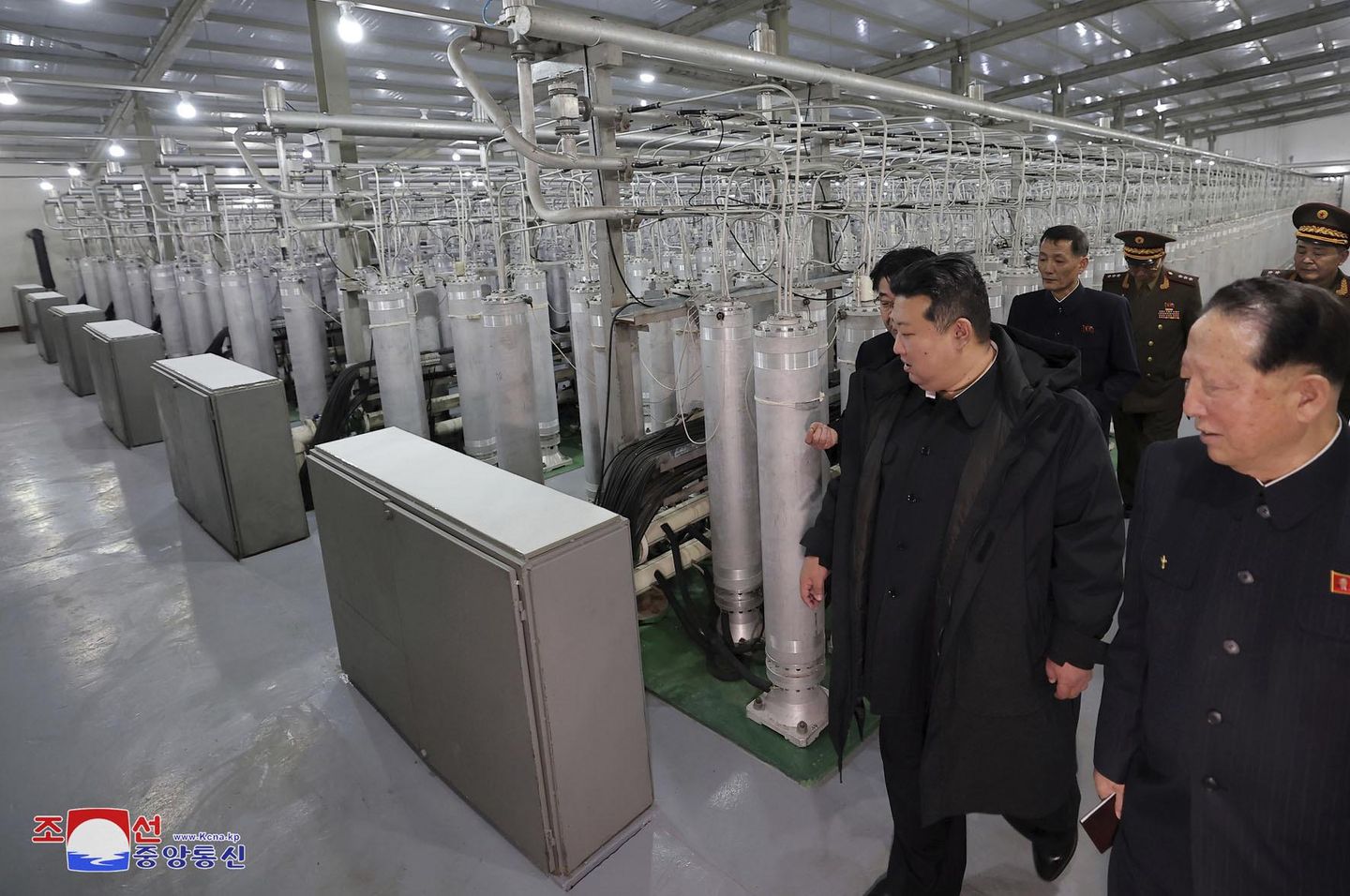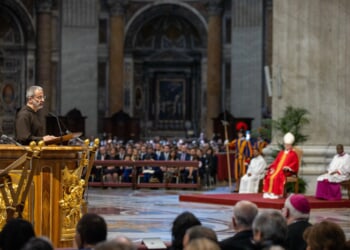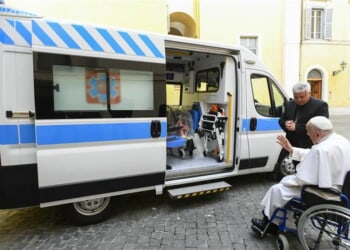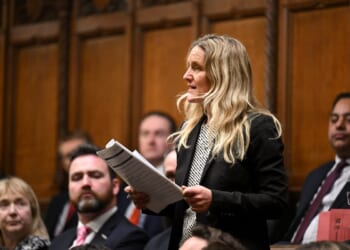
The head of the U.N.’s nuclear watchdog agency is warning that North Korea’s atomic program is growing at an exponential rate without any international oversight.
Rafael Grossi, the director-general of the International Atomic Energy Agency, told a group of reporters on Tuesday that Pyongyang’s nuclear ambitions extend beyond the nuclear complex at Yongbyon and the Kangson uranium enrichment site near North Korea’s capital.
“We’ve also seen new sites apart from what we have traditionally been monitoring,” Mr. Grossi said. “We see a total absence of any kind of engagement from anybody.”
The facility at Kangson is suspected of being designed to produce Uranium-235, which can be used in nuclear weapons.
“This is a very important, ambitious, multidimensional nuclear program with no nuclear safety or security monitoring standard of any kind,” Mr. Grossi said. “It’s a picture of a growing and increasing concern.”
The 2025 Annual Threat Assessment, released last month by Director of National Intelligence Tulsi Gabbard, said North Korean leader Kim Jong-un remains committed to increasing the number of nuclear warheads and improving his missile capabilities. The goal is to weaken U.S. power in the Asia-Pacific region.
“North Korea’s military poses a lethal threat to U.S. forces and citizens in South Korea and the region by its ability to launch massive conventional strikes across the DMZ and continued investments in niche capabilities designed to deter outside intervention and offset enduring deficiencies in the country’s conventional forces,” according to the report.
North Korea has declared itself a nuclear state. Mr. Grossi said a lot has happened in the communist country since 2009, when his agency’s staffers were “invited” to leave it.
“The IAEA continues to be the only institution continuing to provide technical analysis of what is going on,” he said. “I’ve been discussing this with neighboring countries, and nobody says this could stand in any country in Europe, or Latin America or any part of the world.”
North Korea is estimated to have at least 50 warheads in its nuclear arsenal. Western officials suspect that Pyongyang is relying on the Kremlin for its missile development needs in exchange for military support. Mr. Grossi said Western countries like the U.S. must engage more with the communist capital.
“You cannot have a country like this, which is completely off the charts with this nuclear arsenal … without us having any clue about any safety or security measures when they have been applied to them,” Mr. Grossi said Tuesday while speaking at the Council on Foreign Relations.
Army Gen. Xavier T. Brunson, commander of U.S. forces in South Korea, agreed with the IAEA conclusion, telling lawmakers on Capitol Hill that Pyongyang is moving forward with its weapons development while becoming increasingly isolated.
North Korea launched 47 ballistic missiles in 2024 as it focuses on advancing cruise missile and hypersonic glide vehicle research and development programs. Pyongyang was also behind the theft of about $1.5 billion in cryptocurrency that analysts say is to help pay for its nuclear mission.
Gen. Brunson told lawmakers it would be unwise to begin reducing U.S. troop levels in Korea while Pyongyang continues developing its nuclear weapons programs. Meanwhile, the IAEA chief said diplomacy at the highest levels is needed to bridge the gap between the communist capital and Washington.
“Presidential diplomacy is important. The big positions are taken from the top down, not the bottom up,” Mr. Grossi said. “We can highlight the problem, but we need the engagement from the top.”
Mr. Grossi said he’s also weighing whether to become a candidate for U.N. secretary-general when the position becomes vacant in 2027. He served as Argentina’s ambassador to Austria before taking the position with the IAEA.
“I’m considering that very, very seriously,” he said. “The time will come to get into that type of discussion.”


![NYC Tourist Helicopter Falls into Hudson River, Siemens Executive and Family Among Those Killed [WATCH]](https://www.right2024.com/wp-content/uploads/2025/04/NYC-Tourist-Helicopter-Falls-into-Hudson-River-Siemens-Executive-and-350x250.jpg)





![Biden Drops Racial Slur During First Public Speech Since Leaving Office [WATCH]](https://www.right2024.com/wp-content/uploads/2025/04/Biden-Drops-Racial-Slur-During-First-Public-Speech-Since-Leaving-350x250.jpg)

![Green Day’s Cringe Trump Diss Ends in Fire and Evacuation [WATCH]](https://www.right2024.com/wp-content/uploads/2025/04/Green-Days-Cringe-Trump-Diss-Ends-in-Fire-and-Evacuation-350x250.jpg)





